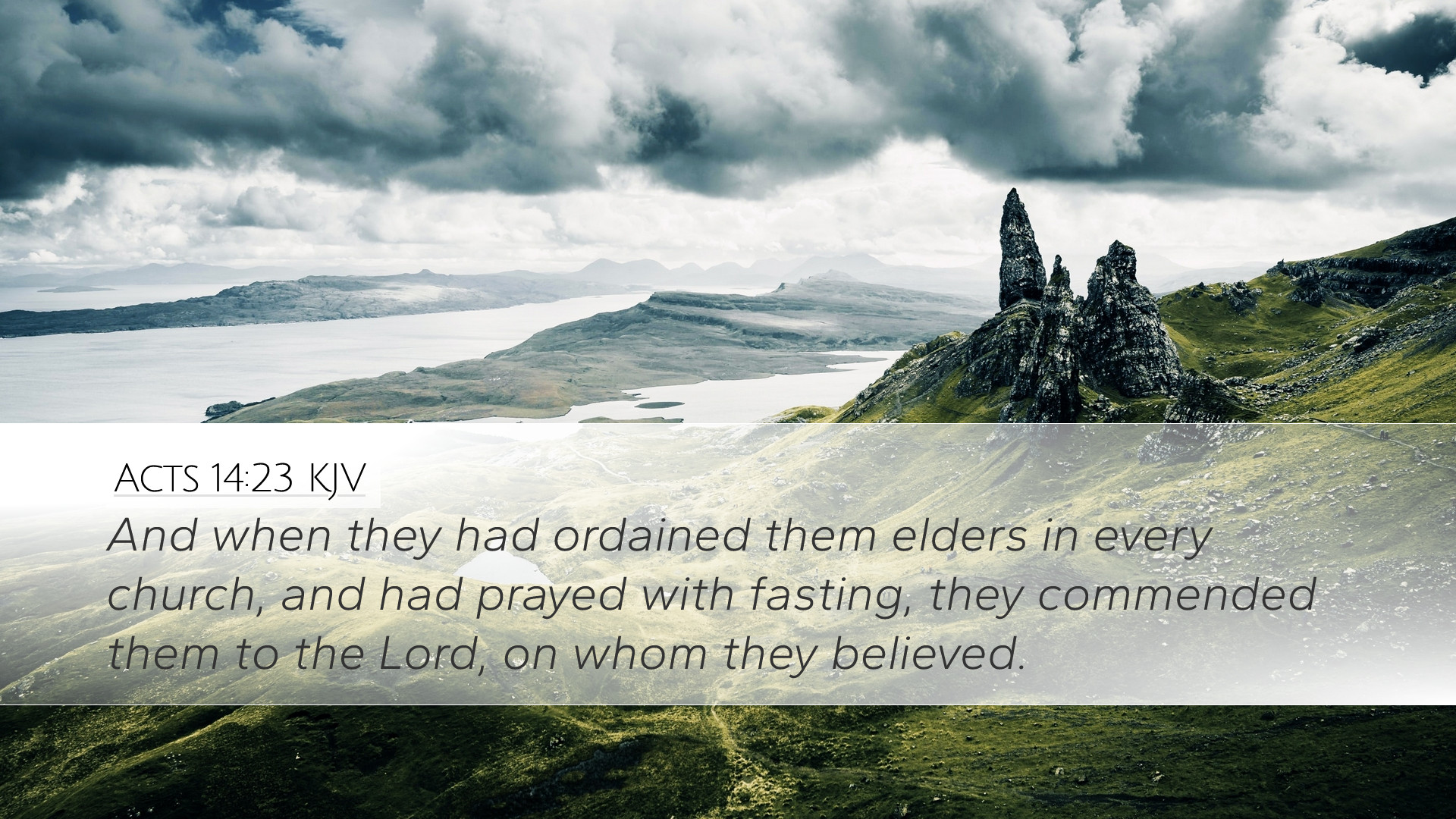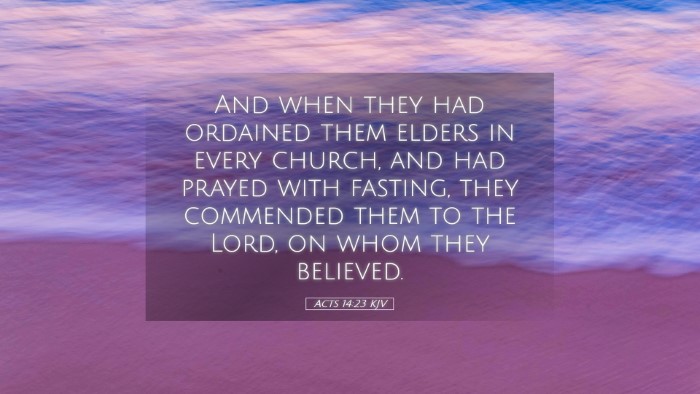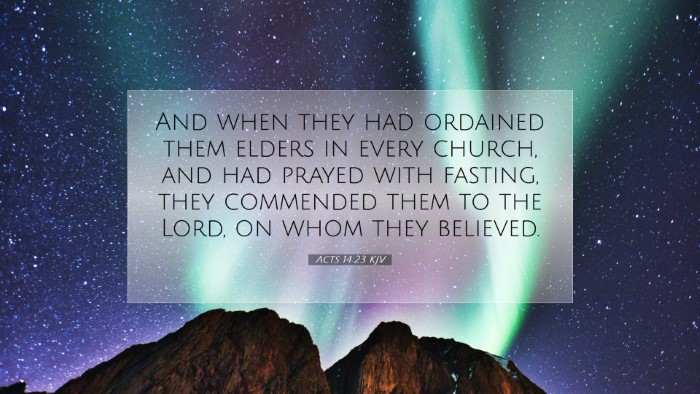Commentary on Acts 14:23
Verse: "And when they had ordained them elders in every church, and had prayed with fasting, they commended them to the Lord, on whom they believed."
Introduction
This verse captures a significant moment in the establishment of the early church and reflects the apostolic practice of church governance, prayer, and the importance of trusting in God's providence. This commentary consolidates insights from renowned public domain commentaries such as Matthew Henry, Albert Barnes, and Adam Clarke, offering a deep understanding for pastors, students, theologians, and Bible scholars.
Contextual Background
The context of Acts 14 tests the fervor of the apostolic mission, where Paul and Barnabas evangelized in various cities. Following their success, the appointment of elders was vital for the ongoing leadership of the fledgling churches. This verse highlights the methodical approach taken by the apostles, affirming the seriousness of establishing spiritual oversight within the community of believers.
Verse Breakdown
1. Ordained Elders
Meaning of Ordination: The ordination of elders reinforces the Scriptural principle that church leadership is a divine calling and duty. Matthew Henry asserts that the apostles set a precedent by ensuring that each church has qualified leaders, emphasizing the necessity for good governance and spiritual maturity.
Albert Barnes emphasizes the importance of these leaders, noting that elders are tasked with teaching, guiding, and protecting the flock. This practice reflects God’s order in the church, akin to the establishment of elders in Israel's history.
2. In Every Church
Significance of Local Leadership: The phrase "in every church" signifies the apostles’ commitment to establishing local governance. Adam Clarke notes the importance of leadership that is directly involved with the congregation, suggesting that no community of believers should be without spiritual oversight.
This local governance allows for greater accountability and the ability to contextualize leadership to the specific needs of each community. The emphasis is on a multiplicity of elders, which regarding the church's health and growth points to the shared responsibility of church leadership.
3. Prayed with Fasting
Spiritual Preparation: The act of praying with fasting before the ordination signifies deep reliance on God’s guidance and wisdom. Matthew Henry remarks that fasting enhances prayer, providing a more intense focus on seeking divine will.
According to Barnes, fasting was a common practice in the early church to demonstrate seriousness and commitment in decision-making processes. This step affirms the spiritual gravity of appointing leaders, recognizing the necessity of divine assistance in fulfilling such roles.
4. Commended Them to the Lord
Transfer of Responsibility: The phrase "commended them to the Lord" signifies entrusting these new leaders to God’s care and oversight. Adam Clarke elucidates that this act of commendation is a solemn commitment, indicative of the apostles’ understanding that while they laid hands on the elders, ultimate responsibility belongs to God.
This is profound in illustrating the tension between human effort in establishing church leadership and the acknowledgment of God's sovereign role in guiding them and the church as a whole.
5. On Whom They Believed
The Foundation of Faith: The concluding phrase underscores the basis of the church’s existence and leadership — faith in the Lord. Barnes notes that faith binds the community to Christ, the source of their strength. The ordination is not just an administrative function; it is rooted in a profound belief in Christ's guidance and authority over the church.
This affirms that every leader needs to be a person of faith, fully committed to the Lord, which is paramount for the health and vitality of the church body.
Practical Implications for Today's Church
- Importance of Qualified Leadership: The necessity of appointing capable and godly leaders serves as a template for today’s churches in ensuring the spiritual welfare of the congregation.
- The Role of Prayer and Fasting: This passage encourages churches to engage in prayer and fasting, especially regarding significant decisions such as the appointment of leaders.
- Trust in Divine Guidance: It reinforces the teaching that leaders need to be commended to the Lord, bearing in mind that they work under His authority and guidance.
- Faith as Foundation: Lastly, this passage serves as a reminder of the centrality of faith in the life of the church. Leaders must rely on their faith in Christ to fulfill their roles effectively.
Conclusion
Acts 14:23 serves as a pivotal point not only in the establishment of church leadership but also offers theological insights that transcend time. The combined wisdom of Matthew Henry, Albert Barnes, and Adam Clarke affirms that the practices the apostles instituted remain relevant to the church today — from the significance of ordained elders to the vital role of prayer and fasting. This verse encapsulates the essence of dependence on God and the centrality of faith for the church’s endurance and growth.


